Featured
 Believe It: A DeSantis Presidency Could Be Even Worse Than Trump. By Bryan Tannehill / The New Republic
Believe It: A DeSantis Presidency Could Be Even Worse Than Trump. By Bryan Tannehill / The New Republic
Donald Trump was and is a lazy, ignorant narcissist. The Florida governor is a smart, motivated, very right-wing Catholic who wants to remake America as he imagines God wants it to be.
The damage Trump was able to do was limited by his lack of discipline, ignorance of how the system worked, laziness, and lack of motivation. He is simply a narcissist who likes feeling rich, powerful, and important. DeSantis, however, is none of these things. He is not lazy. He has discipline, motivation, and an intimate knowledge of how to use the system to get what he wants. DeSantis fully intends to remake America the way he believes God would want it to be, and his knowledge of law and governmental structure allows him to do it on a scale, and with a precision, that Trump could only dream about. Read more
Political / Social
 DeSantis’ alternative African-American history is doomed: Black conservatives can’t replace CRT. By Chauncey Devega / Salon
DeSantis’ alternative African-American history is doomed: Black conservatives can’t replace CRT. By Chauncey Devega / Salon
The AP changed its course after Florida’s GOP governor complained it lacked balance. But what is the opposing view?
Moreover, these attacks are part of a national political project by Republicans. The strategy and tactics are being tested at the state level before being expanded across the country. Florida (along with Texas) is one of the main laboratories for this evil experiment. And predictably, the College Board, which administers the AP courses and exams surrendered to DeSantis’ hostage-taking. Meanwhile, more than 24 states have tried to limit or ban critical race theory from the classroom, according to a tracking project by UCLA. Read more
Related: Black professor defies DeSantis law restricting lessons on race. By Lori Rozsa / Wash Post
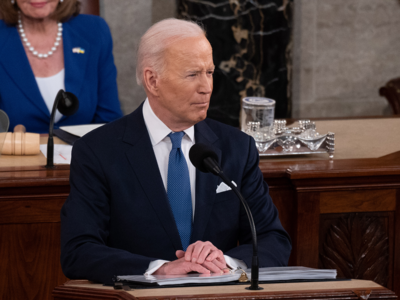 Biden Aims to Win Back White Working-Class Voters Through Their Wallets. By Jonathan Weisman / NYT
Biden Aims to Win Back White Working-Class Voters Through Their Wallets. By Jonathan Weisman / NYT
In his State of the Union address, the president signaled the opening of a yearslong push to persuade white working-class voters to return to the Democratic fold. Winning them over on cultural issues may be more difficult.
With his call for a “blue-collar blueprint to rebuild America,” President Biden on Tuesday night acknowledged rhetorically what Democrats have been preparing for two years: a fierce campaign to win back white working-class voters through the creation of hundreds of thousands of well-paid jobs that do not require a college degree. Read more
Related: Many of Biden’s Goals on Police Reform Are Still Incomplete. Zolan Kanno-Youngs and
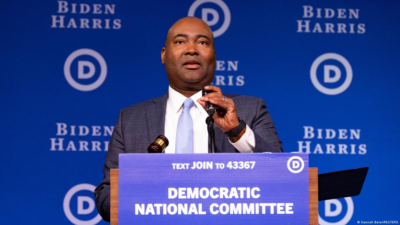 Diversity and moderation over tradition – why Democrats moved South Carolina to the start of the 2024 presidential campaign. By Gibbs Knotts and Jordan Ragusa / The Conversation
Diversity and moderation over tradition – why Democrats moved South Carolina to the start of the 2024 presidential campaign. By Gibbs Knotts and Jordan Ragusa / The Conversation
Shown is Jamie Harrison, Chairman of the Democratic National Committee
The Democratic National Committee approved a proposal on Feb. 4, 2023, that puts South Carolina first on the party’s presidential nominating calendar, upending 50 years of tradition. For the first time, voters of color, moderates, hourly workers – and Southerners – will have the first say in choosing the party’s nominee. Read more
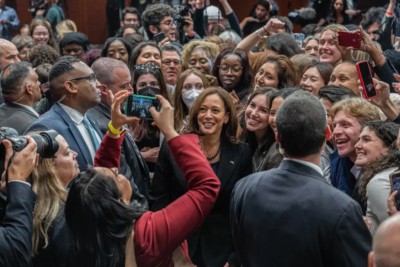 Kamala Harris Is Trying to Define Her Vice Presidency. Even Her Allies Are Tired of Waiting. Zolan Kanno-Youngs, Katie Rogers and
Kamala Harris Is Trying to Define Her Vice Presidency. Even Her Allies Are Tired of Waiting. Zolan Kanno-Youngs, Katie Rogers and
Ms. Harris is struggling to carve out a lane for herself in what may be one of the most consequential periods in the vice presidency.
Through much of the fall, a quiet panic set in among key Democrats about what would happen if President Biden opted not to run for a second term. Most Democrats interviewed, who insisted on anonymity to avoid alienating the White House, said flatly that they did not think Ms. Harris could win the presidency in 2024. Some said the party’s biggest challenge would be finding a way to sideline her without inflaming key Democratic constituencies that would take offense. Read more
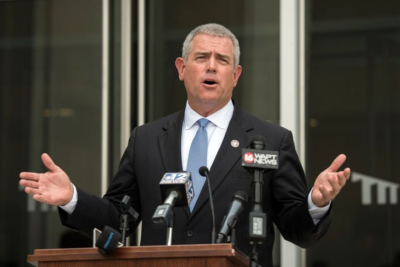 Mississippi House proposes law to create an all-white appointed court system in Jackson. By Rebekah Sager / Daily Kos
Mississippi House proposes law to create an all-white appointed court system in Jackson. By Rebekah Sager / Daily Kos
Philip Gunn, Speaker of the Mississippi House of Representatives, speaks at a flag retirement ceremony in Jackson, Mississippi on July 1, 2020.
After hours of debate, an all-white Mississippi House voted to create a new district in Jackson, “the Blackest city in America,” with a separate court system and police force for Black and white residents—crewed by people appointed by the state’s all-white officials. Mississippi Today reports that if House Bill 1020 becomes law, the new district would have two judges appointed (not elected as in every other county in the state) by the white chief justice of the Mississippi Supreme Court. Additionally, a white state attorney general would appoint four prosecutors, a court clerk, and four public defenders, and the white state public safety commissioner would oversee a newly expanded police force run by (you guessed it) a white police chief. Read more
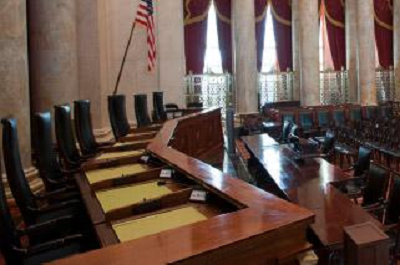 What If Colleges Lose at Supreme Court? By Scott Jaschik / Inside Higher Ed
What If Colleges Lose at Supreme Court? By Scott Jaschik / Inside Higher Ed
Some colleges are starting to plan for what is widely expected to happen: the end of affirmative action. They just aren’t saying so.
Most observers expect that a majority of the Supreme Court justices will ignore the briefs in support of affirmative action. And this raises lots of questions:
- How broad will the Supreme Court decision be? Many colleges that do not have hypercompetitive admissions hope for a narrow decision that might not affect them, but other observers expect a broad decision.
- Will the decision affect financial aid in addition to admissions? (If so, many more colleges could be immediately affected.)
- Will the decision affect recruitment programs for students (for example, a summer program in science for Latinos)? Again, if the Supreme Court decision is in this direction, a lot more colleges could be affected.
In theory, the Supreme Court could rule at any time. But most expect a decision in June, as the court wraps up its work for the 2022 session. Read more
 Why Black Families Are Leaving New York, and What It Means for the City. Troy Closson and
Why Black Families Are Leaving New York, and What It Means for the City. Troy Closson and
Black children in particular are disappearing from the city, and many families point to one reason: Raising children here has become too expensive.
Athenia Rodney is a product of the upward mobility New York City once promised Black Americans. She grew up in mostly Black neighborhoods in Brooklyn, graduated from public schools and attended a liberal arts college on a full scholarship. She went on to start her own event-planning business in the city. But as Mrs. Rodney’s own family grew, she found herself living in a cramped one-bedroom rental, where her three children shared a bunk bed in the living room. It was hard to get them into programs that exposed them to green spaces or swim classes. As she scrolled through friends’ social media posts showing off trampolines in spacious backyards in Georgia, the solution became clearer: Leave. Read more
 The White population count could decrease under a new Biden proposal. By Silvia Foster-Frau / Wash Post
The White population count could decrease under a new Biden proposal. By Silvia Foster-Frau / Wash Post
The Biden proposal would give Latinos and people of Middle Eastern and North African descent more options for identifying themselves, potentially lowering the White population count
Last week, the Biden administration submitted a preliminary proposal to better account for the country’s MENA and Latino populations in the census. The Middle Eastern and North African population would be recognized as a distinct ethnic identity for the first time. And Latinos would be able to identify as such without having to also identify as a separate race, such as Black or White. The proposal could change how race and ethnicity are measured across the country, from statewide and local records on police violence to health disparity data. Read more
Ethics / Morality / Religion
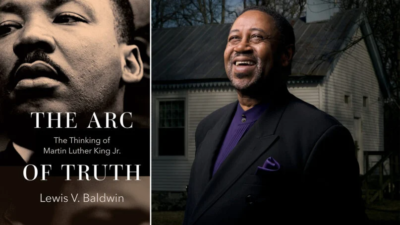 King scholar applies his philosophies of truth to a ‘post-truth age.’ By Adelle M. Banks / RNS
King scholar applies his philosophies of truth to a ‘post-truth age.’ By Adelle M. Banks / RNS
Dr. King argued that no religion has a monopoly on truth,’ said Lewis V. Baldwin, emeritus professor of religious studies at Vanderbilt University.
In a thick volume, “The Arc of Truth: The Thinking of Martin Luther King Jr.,” Baldwin continues his study of King. After previously concentrating on King’s cultural roots and his prayer life, the emeritus professor of religious studies at Vanderbilt University focuses on what the leader had to say about truth. “We’re living in an age of lies and conspiracy theories and alternative truths, disinformation,” he told Religion News Service in an interview. “I wanted to write a book that would speak to that and since I am a King scholar, I thought King would be a great case study for getting at these kinds of challenges because King had a lot to say about the power of truth, of truth telling and of truth sharing.” Read more
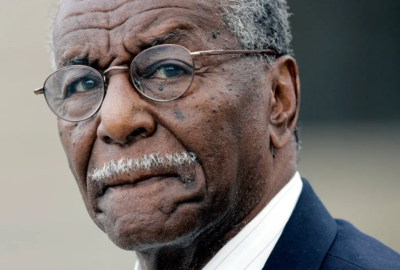 The Astonishing Moral Beauty of Rev. Shuttlesworth and the Black Church.
The Astonishing Moral Beauty of Rev. Shuttlesworth and the Black Church.
The Rev. Fred L. Shuttlesworth, a pastor in Birmingham, Ala., in the 1950s, was called by the historian Andrew Manis “one of the least known but most impactful figures in the civil rights movement.” Shuttlesworth was a close friend and colleague of Dr. Martin Luther King Jr., but nearly his opposite in personality — boisterous, direct and exuberant by nature. He was, the author Diane McWhorter told The Times, “King’s most effective and insistent foil: blunt where King was soothing, driven where King was leisurely, and most important, confrontational where King was conciliatory.” Read more
 Indianapolis Black Catholic parish recognized for historical, cultural impact. By Natalie Hoefer / NCR
Indianapolis Black Catholic parish recognized for historical, cultural impact. By Natalie Hoefer / NCR
Shown is a Baptistry mosaics and brass works by artist Peter Recker are seen at St. Rita Catholic Church in Indianapolis March 6. St. Rita is one of 16 Christian churches to receive a grant from the National Fund for Sacred Places. (OSV News/Courtesy of National Fund for Sacred Places/Caleb Legg)
It was the first archdiocesan parish to offer kindergarten and accredited day care. It sponsored Indianapolis’ first interracial, parochial versus public high school football game. Its boxing club produced three-time light heavyweight world champion Marvin Johnson. “Nationally recognized architectural and artistic significance” can now be added to that list. The parish’s church stands not only as an important example of Mid-Century Modern architecture, but also as what is possibly the world’s largest collection of art works by Peter Recker, a globally renowned Catholic artist of the mid-1900s. Read more
Historical / Cultural
 “Indigenous Continent” Flips American History. By Sean T. Byrnes / The New Republic
“Indigenous Continent” Flips American History. By Sean T. Byrnes / The New Republic
Unlike accounts that focus on the travails of European settlers, Pekka Hämäläinen’s new book tells a 10,000-year story of Native cultures, politics, and resistance.
It is this ferociously imperial United States that emerges from Pekka Hämäläinen’s valuable new book, Indigenous Continent: The Epic Contest for North America, and it does so precisely because the U.S. is not his focus. As his title indicates, Hämäläinen instead tells the story of an Indigenous North America, one that emerged tens of thousands of years before Columbus arrived, remained dominant until the nineteenth century, and endures to the present. Read more
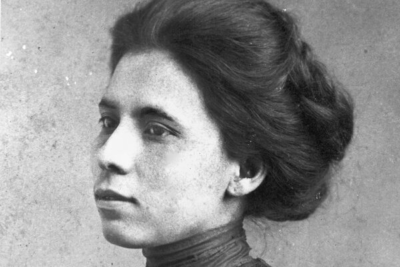 Overlooked No More: Frances Ellen Watkins Harper, Poet and Suffragist. By Ian Zack / NYT
Overlooked No More: Frances Ellen Watkins Harper, Poet and Suffragist. By Ian Zack / NYT
One of the best-known Black poets of the 19th century, she was also a renowned orator. “You white women speak here of rights,” she said. “I speak of wrongs.”
On May 8, 1866, with the Civil War over, key supporters of the women’s suffrage movement gathered in a church in the Union Square section of Manhattan with the goal of refocusing the nation’s attention on extending the ballot to women. “Now in the reconstruction is the opportunity, perhaps of the century, to base our government on the broad principle of equal rights to all,” Elizabeth Cady Stanton, one of the movement’s leaders, told the convention. Later that morning, however, Frances Ellen Watkins Harper, the lone Black person to speak that day, challenged the room. Until the nation was colorblind, she said, true democracy remained far from reach. “You white women speak here of rights,” she said. “I speak of wrongs.” Read more
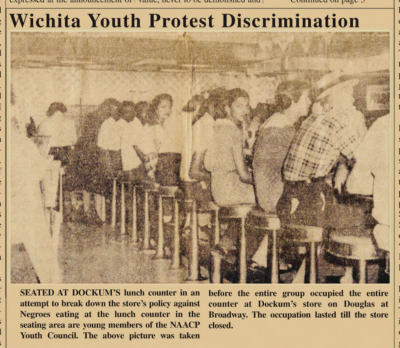 The brave, forgotten Kansas lunch counter sit-in that helped change America. By Kate Torgovnick May/ Wash Post
The brave, forgotten Kansas lunch counter sit-in that helped change America. By Kate Torgovnick May/ Wash Post
A newspaper clipping from the Aug. 7, 1958, issue of the Enlightener, a Black newspaper in Wichita shows the Dockum Drug Store lunch counter sit-in, one of the earliest in the United States. (Wichita-Sedgwick County Historical Museum)
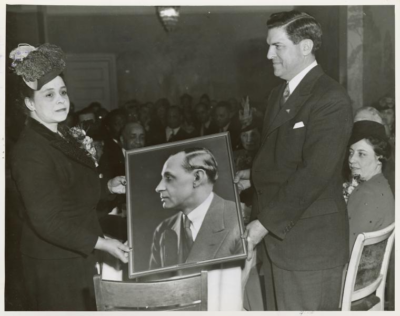 Striving Toward Freedom and Black Pittsburgh. By Hettie Williams / AAIHS
Striving Toward Freedom and Black Pittsburgh. By Hettie Williams / AAIHS
Mrs. Ira T. Lewis, wife of the president of the Pittsburgh Courier Publishing Company, presents a photograph of the late Robert L. Vann, former publisher of the Pittsburgh Courier, to a representative of the shipyard workers at the launching of the Liberty ship SS Robert L. Vann, Circa 1943 (NYPC)
Canaan, Dim and Far: Black Reformers and the Pursuit of Citizenship in Pittsburgh, 1915-1945 (University of Georgia Press, 2021) by Adam Lee Cilli, Assistant Professor of History at the University of Pittsburgh at Greensburg, is an assiduously researched historical study that focuses on Black middle-class reform efforts in Pittsburgh, Pennsylvania, during the height of the Great Migration from 1915 to 1945. Read more
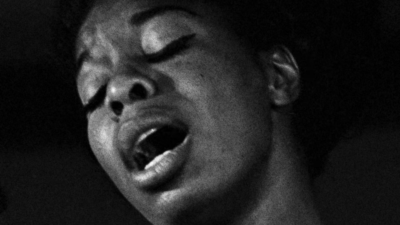 A Poem by Cortney Lamar Charleston: ‘It’s Important I Remember That Nina Simone Wrote ‘Mississippi Godam’ in Less Than One Hour. By Courtney Lamar Charleston / The Atlantic
A Poem by Cortney Lamar Charleston: ‘It’s Important I Remember That Nina Simone Wrote ‘Mississippi Godam’ in Less Than One Hour. By Courtney Lamar Charleston / The Atlantic
and she meant every word.
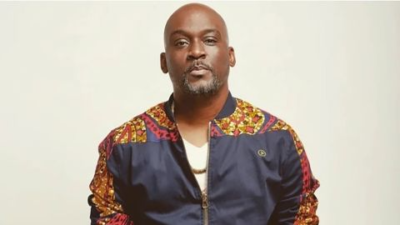 Alabama community rallies in support of a Black author after school district cancels Black History Month event. By Alaa Elassar / CNN
Alabama community rallies in support of a Black author after school district cancels Black History Month event. By Alaa Elassar / CNN
A suburban Alabama community is rallying behind a Black author after the school district rescinded an invitation to have him speak and read his books at local elementary schools during Black History Month.
Award-winning children’s book author Derrick Barnes, known for writing stories for and featuring Black children, will no longer be visiting three Hoover City Schools, a school system just south of Birmingham, Alabama area this week. Dee Fowler, the district superintendent, cited contract issues and a parent’s “concern” regarding Barnes’ social media posts, he told CNN. The cancellation incited outrage from frustrated parents, teachers, and Hoover residents, some of whom channeled anger into activism. Hundreds have come together to raise a portion of the $9,900 Barnes would have been paid for the events. Read more
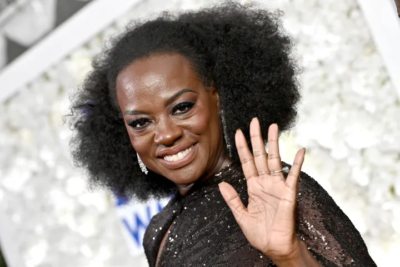 Viola Davis Just Became An EGOT Winner. By Taryn Finley / HuffPost
Viola Davis Just Became An EGOT Winner. By Taryn Finley / HuffPost
“The Woman King” actor won her first Grammy for narrating her debut memoir, “Finding Me.”
This win makes Davis, 57, the fourth Black person to earn an Emmy, Grammy, Oscar and Tony behind Whoopi Goldberg, Jennifer Hudson and John Legend. Quincy Jones, James Earl Jones and Harry Belafonte’s respective honorary awards also make them EGOT winners. She is the 18th person overall to receive the status. Read more
 Beyoncé Makes History at a Star-Powered Grammy Ceremony. By Ben Sisario / NYT
Beyoncé Makes History at a Star-Powered Grammy Ceremony. By Ben Sisario / NYT
Beyoncé set a record for the most career Grammys won by any artist but was once again shut out of the biggest awards as the ceremony returned to a Los Angeles arena.
Still, Beyoncé’s accomplishment resonated throughout the evening. Accepting her 32nd career award, Beyoncé thanked God and her family, and honored her “Uncle Jonny,” a gay relative whom she has described in the past as her “godmother” and as the person who exposed her to L.G.B.T.Q. culture. Read more
Sports
 What the sports world says about LeBron James, NBA’s new scoring leader: ‘An iconic figure.’ By The Athletic Staff
What the sports world says about LeBron James, NBA’s new scoring leader: ‘An iconic figure.’ By The Athletic Staff
As LeBron James marched toward the NBA’s all-time scoring record, which he broke Tuesday night against the Oklahoma City Thunder, writers from across The Athletic asked players and coaches he competed with and against, as well as fans in sports from afar, what comes to mind when they think of LeBron. Here’s some of what they said: Read more
Related: LeBron James’s Double Burden. By Dave Zirin / The Nation
 A Milestone for Black N.F.L. Hires, but Not on the Sidelines. By Emmanuel Morgan / NYT
A Milestone for Black N.F.L. Hires, but Not on the Sidelines. By Emmanuel Morgan / NYT
Five Black presidents have been hired to lead N.F.L. teams, an influx some hope could provide a blueprint for diversifying leadership even as the league struggles to improve head coaching searches. Shown is Jason Wright, the Washington Commanders president is the first Black president of an N.F.L. team.
In the span of about two and a half years, four other Black team presidents — Kevin Warren (Chicago Bears), Sashi Brown (Baltimore Ravens), Sandra Douglass Morgan (Las Vegas Raiders) and Damani Leech (Denver Broncos) — were hired. The surge means that more than 15 percent of the league’s presidents are Black. Read more
 Kyrie Irving Says He Wants to Change His Narrative in Dallas. By Scott Cacciola / NYT
Kyrie Irving Says He Wants to Change His Narrative in Dallas. By Scott Cacciola / NYT
After his first practice with the Dallas Mavericks since being traded from the Nets, Kyrie Irving said he felt nothing but “genuine love” from his new team. Kyrie Irving, left, joins a backcourt with the 23-year-old star Luka Doncic, who is averaging 33.4 points per game.Credit…Brad Penner/USA Today Sports, via Reuters
“I want to be in a place where I’m celebrated and not just tolerated or just kind of dealt with in a way that doesn’t make me feel respected,” Irving said in his first public remarks since the Nets fulfilled his trade request and agreed to send him to the Mavericks on Sunday. “And there were times throughout this process when I was in Brooklyn where I felt very disrespected.” Read more
 ‘MLB The Show 23’ introduces new game mode featuring Negro League legends. By Scott Allen / Wash Post
‘MLB The Show 23’ introduces new game mode featuring Negro League legends. By Scott Allen / Wash Post
Kansas City Monarchs pitcher Satchel Paige warms up at Yankee Stadium before a Negro League game between the Monarchs and the New York Cuban Stars in 1942. Paige is one of eight Negro League legends who will be featured in the latest version of the “MLB The Show″ video game series. (Matty Zimmerman/AP)
Site Information
Articles appearing in the Digest are archived on our home page. And at the top of this page register your email to receive notification of new editions of Race Inquiry Digest.
Click here for earlier Digests. The site is searchable by name or topic. See “search” at the top of this page.
About Race Inquiry and Race Inquiry Digest. The Digest is published on Mondays and Thursdays.
Use the customized buttons below to share the Digest in an email, or post to your Facebook, Linkedin or Twitter accounts.